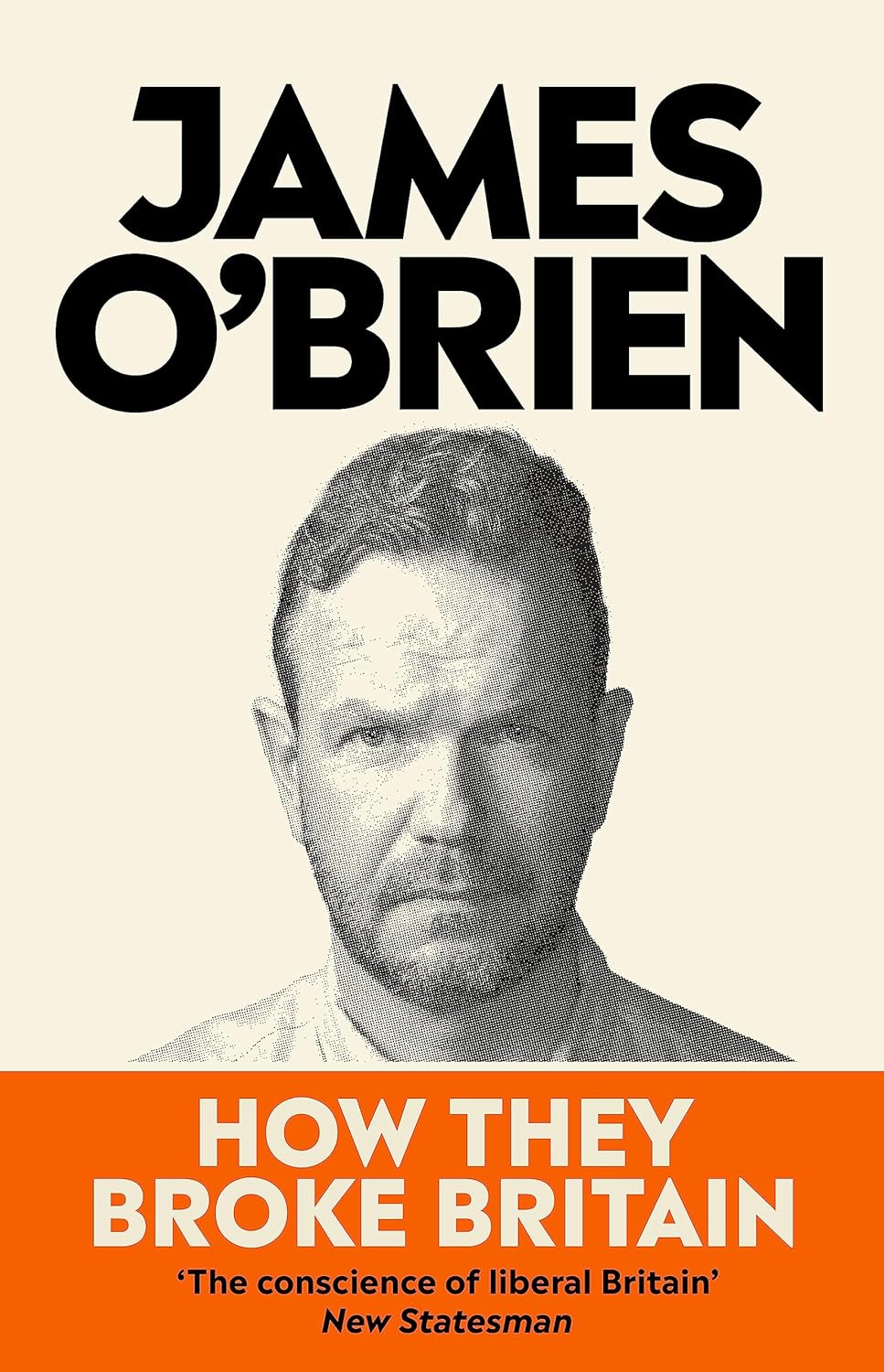
How They Broke Britain
James O'Brien
About the Author

James O'Brien
Questions & Answers
The book depicts the breakdown of British society as a result of the intertwined influence of media and political figures. Rupert Murdoch and Paul Dacre, through their newspapers, propagated hate and misinformation, undermining public discourse and promoting a narrative of fear and division. Andrew Neil exemplified the media's role in shaping public opinion, while think tanks like the Institute of Economic Affairs (IEA) and the TaxPayers' Alliance (TPA) influenced policy with their neoliberal agenda. Nigel Farage and Boris Johnson exploited populism and xenophobia to advance their political goals. David Cameron and George Osborne's "austerity" measures exacerbated social and economic inequalities. Jeremy Corbyn's leadership was compromised by his inability to address criticism effectively, and Dominic Cummings' strategy for the Brexit referendum was manipulative and dishonest. These figures, through their actions and influence, contributed to the erosion of British society's values and stability.
The 'Brexit/think tank/Tory media triangle' is a pivotal concept in the book, symbolizing a symbiotic relationship that significantly influenced Britain's political landscape. This triangle represents the interlocking power dynamics among pro-Brexit media, think tanks, and the Conservative Party. Murdoch's media empire, particularly the Daily Mail, played a crucial role in promoting Eurosceptic narratives. Think tanks like the IEA, often funded secretly, pushed pro-market policies and influenced both media and politics. The Conservative Party, under various leaders, adopted these policies, often ignoring economic warnings. This triangle's significance lies in its ability to manipulate public discourse, promote Euroscepticism, and ultimately lead to the UK's decision to leave the EU, with profound and often negative consequences. The triangle exemplifies how media, think tanks, and politics can collude to shape public opinion and policy, often with little accountability.
The book argues that certain individuals have risen to prominent positions in British politics due to a combination of factors. Firstly, it highlights the influence of media, particularly Rupert Murdoch and Paul Dacre, who have used their platforms to promote certain ideologies and individuals, often at the expense of truth and integrity. Secondly, the book points to the role of "think tanks" like the Institute of Economic Affairs, which stealthily promote policies favorable to businesses and wealth, and individuals like Matthew Elliott, who have been instrumental in shaping public discourse. Additionally, the book suggests that the political landscape has been corrupted by cronyism and a lack of accountability, allowing individuals with flaws or unethical behavior, like Boris Johnson and Dominic Cummings, to rise to power. The book also criticizes the political parties for their failure to adequately scrutinize these individuals, leading to a situation where the most unqualified and unethical candidates are able to secure prominent positions.
The book portrays the media as a pivotal force in shaping public opinion and the political landscape in the UK. It suggests that media moguls like Rupert Murdoch and Paul Dacre, through their newspapers, have promoted hate and division, influencing public discourse and political outcomes. The book highlights several implications:
-
Manipulation of Public Opinion: The media's role in promoting sensationalist and often misleading stories has led to the manipulation of public opinion, particularly on issues like immigration and race.
-
Weakening of Journalism: The book criticizes the decline of factual journalism and the rise of sensationalism, which undermines the credibility of the media and its ability to hold power accountable.
-
Political Polarization: The media's role in promoting certain viewpoints has contributed to the polarization of society and politics, making it difficult for moderate voices to be heard.
-
Impact on Governance: The influence of media moguls on political leaders has led to policies that may not be in the public interest but are beneficial to media interests.
-
Erosion of Trust: The book suggests that the media's role in shaping the political landscape has eroded public trust in both the media and the political system.
Overall, the book argues that the media's role in shaping public opinion and the political landscape has had profound and negative consequences for the UK, contributing to a more divided and less democratic society.
The book suggests addressing UK's political and social issues by acknowledging the systemic corruption and manipulation that has led to the current state. It emphasizes the need to dismantle the influence of powerful individuals and organizations like Rupert Murdoch, Paul Dacre, and Andrew Neil, who have used their media platforms to spread misinformation and promote divisive narratives. The book also highlights the importance of holding politicians accountable for their actions, especially those who have engaged in unethical behavior or violated the law. Additionally, it calls for a reevaluation of the country's political and social values, emphasizing the need for integrity, honesty, and a commitment to the well-being of all citizens. By addressing these root causes, the book suggests that the UK can move towards a more just and equitable society.